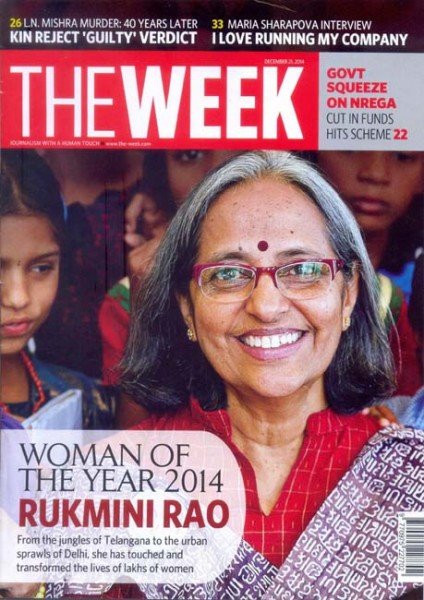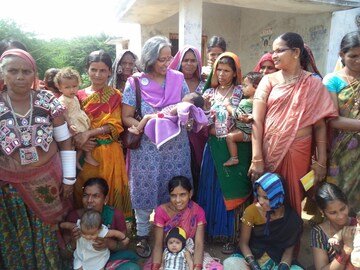Are Indian Tribal Girls Being Exploited as Experimental Subjects?
In November 2021, allegations arose that tribal girls were used as guinea pigs for cervical cancer research. These shocking claims have raised concerns about the ethics and human rights violations in medical research.

First and foremost, the utilization of vulnerable tribal girls as test subjects raises serious ethical questions. These girls, often from marginalized communities, may lack the necessary information and understanding to provide informed consent. Informed consent is a fundamental principle in medical research, ensuring that individuals fully comprehend the risks and benefits of participating in a study. However, in the case of these tribal girls, it is highly likely that they were not adequately informed about the potential risks and long-term consequences of their involvement.
Furthermore, the use of tribal girls as test subjects without their explicit consent raises concerns about autonomy and agency. It is crucial to respect the autonomy of individuals, especially when it comes to their bodies and health. By disregarding the agency of these girls, their rights to make decisions about their own bodies have been violated, potentially leading to long-lasting physical and psychological harm.
Tribal girls died in Andhra Pradesh after being administered doses of the HPV vaccine Gardasil in a demonstration trial conducted by an American pharmaceutical company in cooperation with state governments and ICMR. Though officials claim parental consent was taken and the deaths were suicides, activists allege a lack of informed consent and severe adverse reactions experienced by many girls. They have demanded an independent investigation, questioning why the trials were conducted on poor tribal girls instead of urban elites.
Vaccinegate: ICMR admits irregularities
Which organisations were involved in conducting the cervical cancer vaccine demonstration trials?
Bill & Melinda Gates Foundation
Gates Foundation supported cervical cancer vaccine trials by providing funds and partnering with other organizations.
World Health Organization (WHO)
Agency of the United Nations, World Health Organization (WHO) has been actively involved in global cervical cancer vaccine trials.
National Institutes of Health (NIH)
In the United States, National Institutes of Health (NIH) has supported clinical trials, including studies on vaccines for cervical cancer. Their medical research and access to state-of-the-art facilities have contributed to vaccine development.
Centers for Disease Control and Prevention (CDC)
The Centers for Disease Control and Prevention (CDC) in the United States is another organization involved in cervical cancer vaccine trials.
Global Alliance for Vaccines and Immunization (GAVI)
The Global Alliance for Vaccines and Immunization (GAVI) is a coalition of public and private sector partners dedicated to increasing access to vaccines worldwide. GAVI has supported various cervical cancer vaccine demonstration trials, particularly in low-income countries.
International Agency for Research on Cancer (IARC):
The IARC, a cancer agency of the World Health Organization, helped create vaccines for cervical cancer.
Allegations made by activists against the trials:
Dr Rukmini Rao whose Gramya Resource Centre for Women has been working among tribals of Nalgonda and Khammam for more than a decade confirmed that as many as 120 girls experienced adverse reactions such as epileptic seizures, severe stomach, headaches and mood swings.

There have also been reports of early onset of menstruation following the vaccination, heavy bleeding and severe menstrual cramps. “We learnt that one of the girls died due to convulsions while another had an epileptic fit. But the doctors are passing these deaths off as cases of suicide,” said Rukmini Rao.
The claims of the NGO and the government health officials that the permission of parents was taken in writing to administer the vaccine are questioned by activists. In the first place, the parents are too poor and illiterate to understand the implications Activists point out that this claim too was false as the vaccine had manifested severe side effects including deaths in the US, UK and other European countries.
Rukmini Rao asked if the vaccine was really so effective why was it not tried out in elite schools in urban areas,” she asked. “Now that the hoo-ha over cervical cancer has died down in the western countries the manufacturers are trying to create a market in India,” she said.

It is important to address these allegations and maintain transparency to ensure public trust in vaccination programs. Here are some of the main allegations made by activists:
- Informed Consent and Ethical Concerns:
Activists have claimed that during the trials, some participants were not adequately informed about the potential risks and benefits of the vaccines. There were allegations that informed consent was not obtained properly, raising ethical questions regarding the validity of the trials’ results. - Adverse Events and Side Effects:
Some activists have criticized the trials, alleging that adverse events and side effects were not thoroughly reported or acknowledged. They argue that this lack of transparency regarding potential risks may have compromised the safety of the participants and subsequent vaccine recipients. - Conflict of Interest:
Another concern raised by activists is the potential conflict of interest among the organisations conducting the trials. They argue that financial ties between pharmaceutical companies and the trial organisers may have influenced the trial outcomes, leading to biased results. - Efficacy and Long-Term Effects:
Activists have called for more extensive studies on the long-term effects and efficacy of the cervical cancer vaccines. They believe that insufficient research has been conducted to assess the true benefits and potential risks associated with the vaccines over an extended period, raising doubts about their effectiveness. - Lack of Diversity in Trial Participants:
There have been allegations that the trials lacked diversity in terms of participant demographics, mainly focusing on a specific geographic area or population group. Activists argue that this limited representation may undermine the generalizability of the trial results and the effectiveness of the vaccines on a global scale.
The allegations of tribal girls being used as guinea pigs for cervical cancer research in November 2021 are deeply concerning. It highlights the need for transparency, informed consent, and ethical guidelines in medical research. By prioritizing the protection of human rights and ensuring independent oversight, we can prevent abuses and safeguard the well-being of research participants.
Source: DH, Frontline-Image, 1mg-image, Cnbctv18-Image
Also Read:
